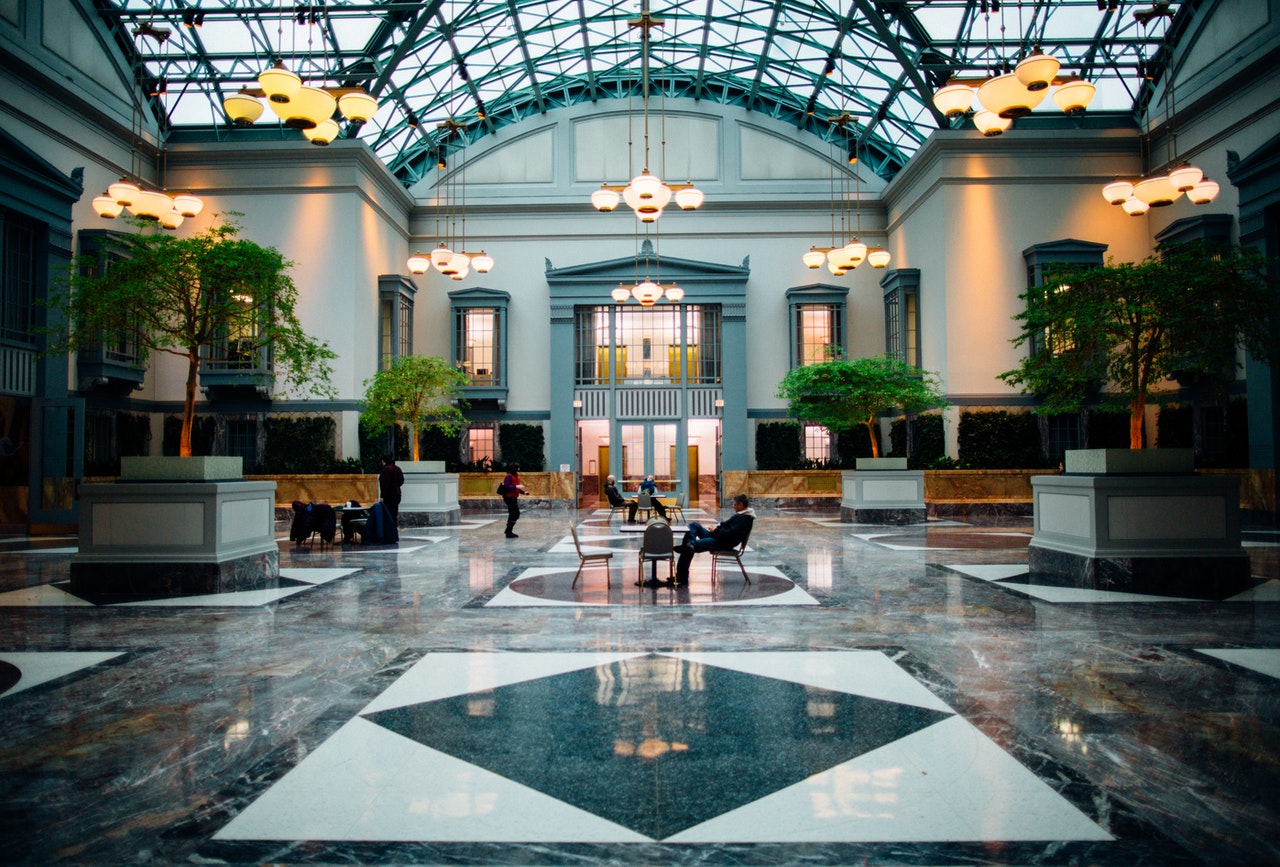The effect that Covid-19 has had on the hotel industry has been detrimental, and has forever changed the way people will holiday. Hotels are needing to adapt fast to meet the vision of sanitised, robotic customer service that all visitors will have once restrictions have been fully lifted and the industry starts getting back to its feet. Preparing your hotel for guests starts with the moment they enter the hotel area. There should be a display of clear hotel rules in all languages to wear a facemask at all times (except in guest rooms or in any other safe places such as outside areas), social distancing should be maintained between other guests and staff, regular sanitising and a plea to reduce the unnecessary touching of anything capable of transmitting the virus. There should be as many hand sanitiser stations (preferably automatic hands-free ones) as possible around your hotel, spread evenly throughout and accounting for potentially hazardous areas such as non-automatic doors, charge points and light switches. Automatic doors and lighting should be fitted where possible, and in potentially busy areas, barriers, screens and signage should be erected for the guest’s safety. Upon entering the hotel lobby area, screens, barriers and signage should direct the guests to an electronic device such as a scanning system or an interactive display to allow them to check-in. Instructions should be made extremely clear with facilities for different languages. Spare facemasks should also be made available at the front desk. Lobby seating areas must be carefully deliberated over, if available at all, with plastic, easily sanitised seating being suitably distanced from one another and phone and laptop charge points should have a compulsory sanitiser point close by. A good idea would be to have cleaning and sanitising arrangements, protective precautions and other helpful information made clear to guests upon their entry, to reassure them of the safety and security of your hotel. Hygiene standards have always been a priority of the hotel industry; however, this must be made a priority and must meet a required standard in all areas of the hotel, focusing on particularly hazardous areas such as elevators, furniture and door handles. Guests should have the option to opt out of room cleaning during their stay, and in between visitors, rooms should be thoroughly sanitised with the linen and sheets being washed at 70 ° C or more. Even though the virus is not considered to be airborne, it can be spread through the air via respiratory droplets, so it is essential to have an air conditioning system pumping clean air throughout your hotel. And finally, one of the most challenging aspects of safe practise within your hotel: food service. Eating areas must be properly distanced and have correct walkways in and out, with sanitiser readily available. Buffets are out of the question, with ready-made portions and servings being the most suitable solution. Waiters must wear masks, regularly sanitise and keep maximum distance from guests as possible with minimum contact to what they are serving. Paper cups and wooden cutlery are the most sustainable option for disposable utensils, and each dining area should be thoroughly sanitised between guests. Where possible, a solution to the issue of dining is offering meals to be delivered to the guest’s room, making the process both safer and easier. It isn’t going to be an easy road ahead keeping hotel guests safe and secure, but as a number 1 priority of any hotel, whatever measures needed will be taken, whatever necessary technology will be acquired and whatever problems revealed will be solved. We will prevail.
